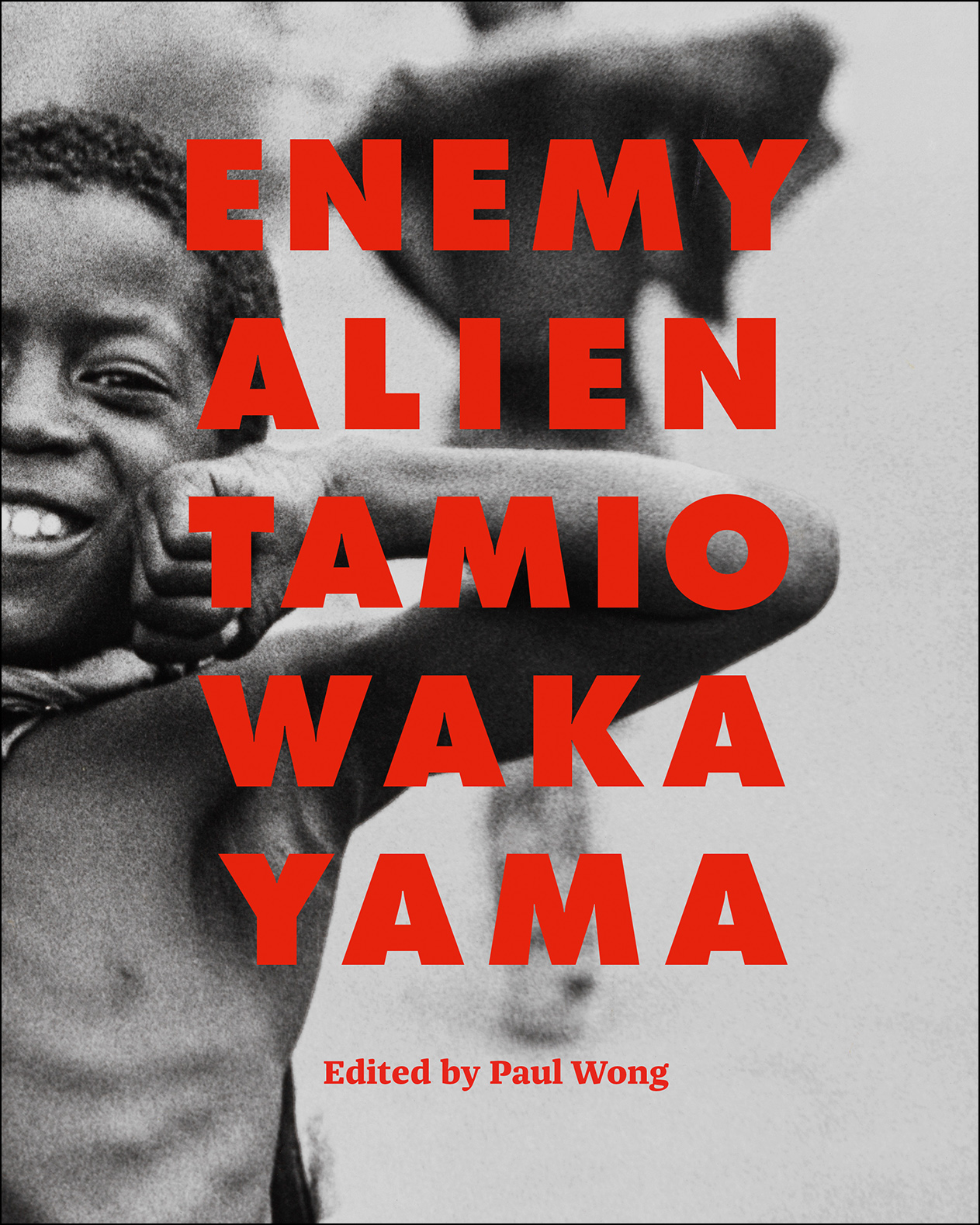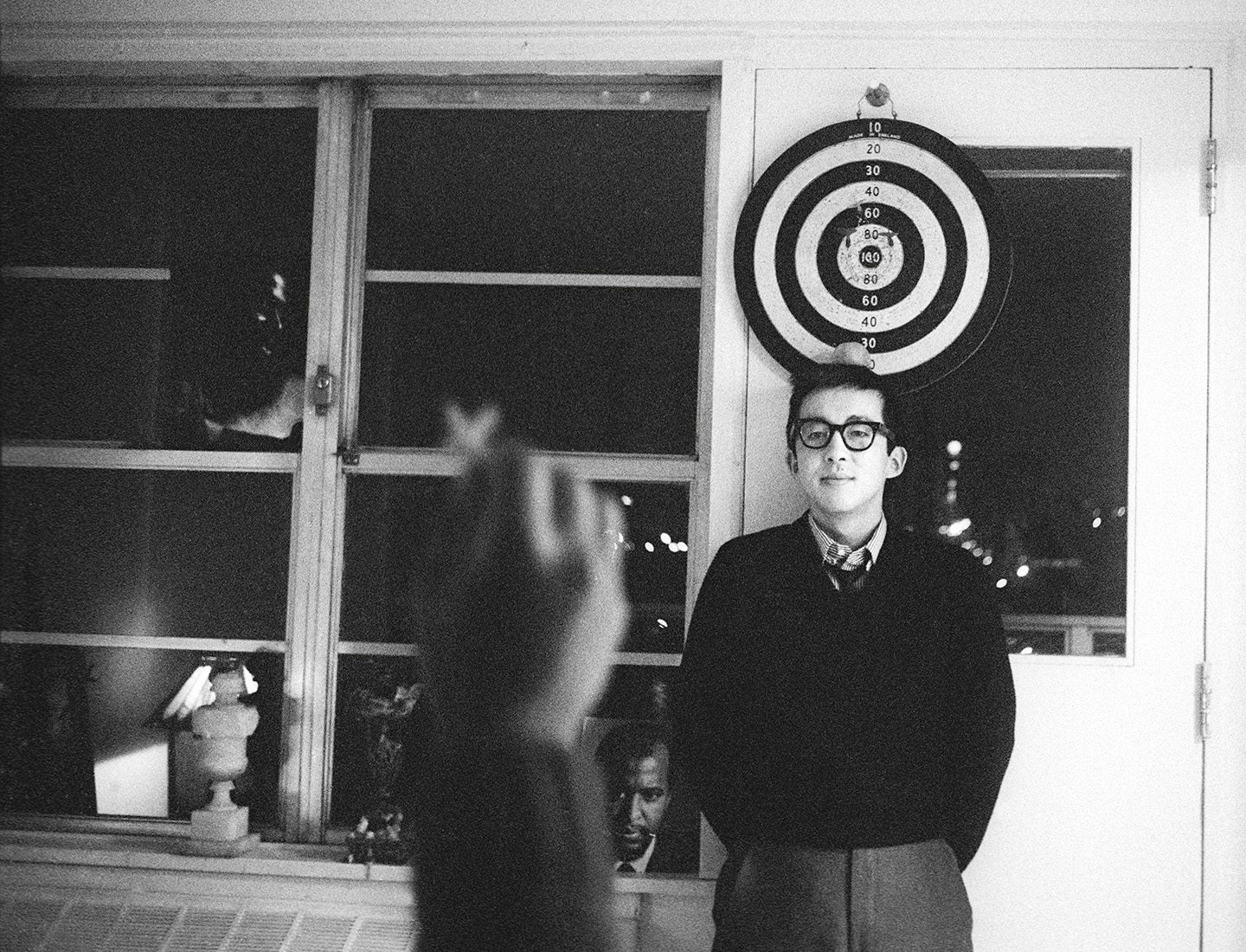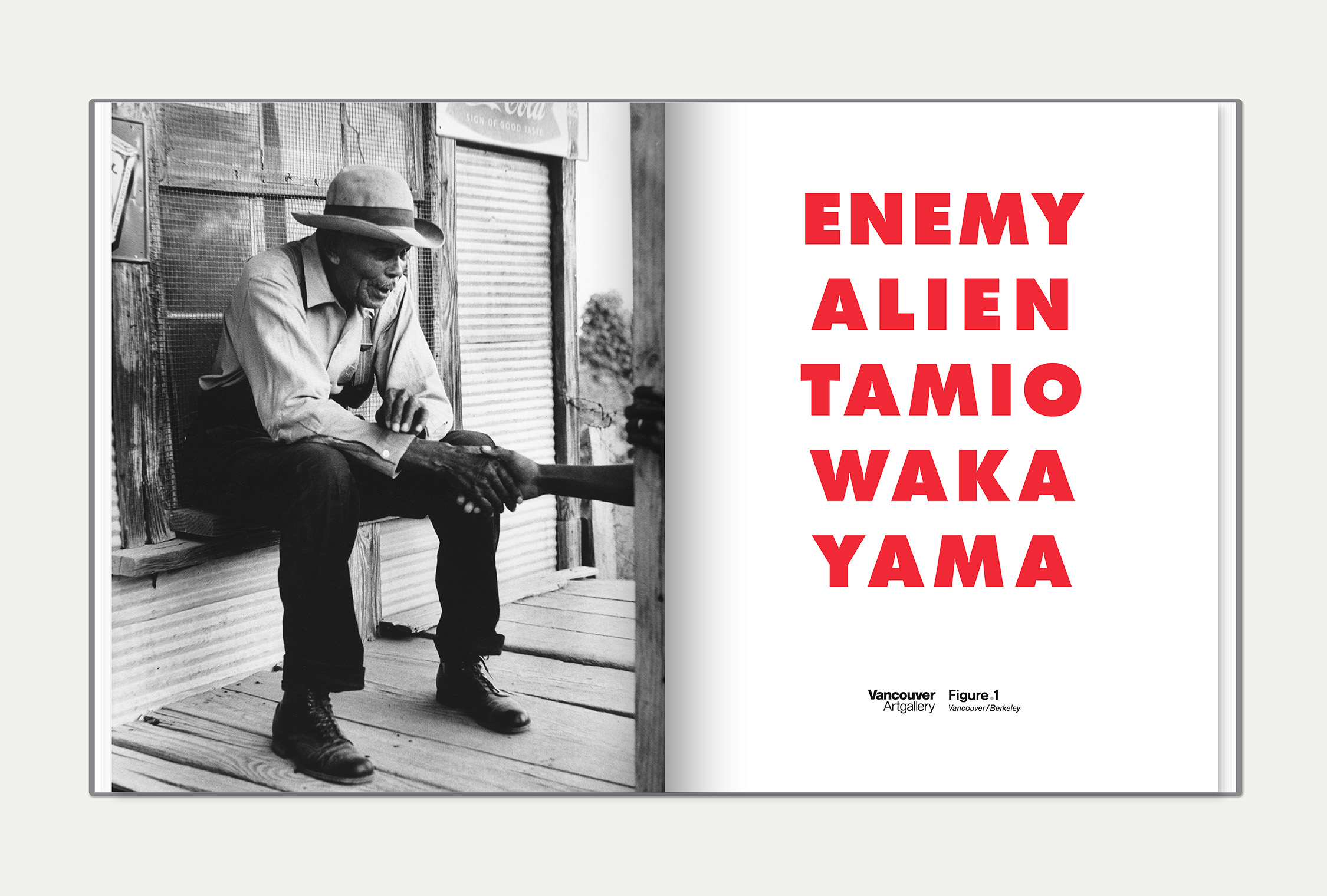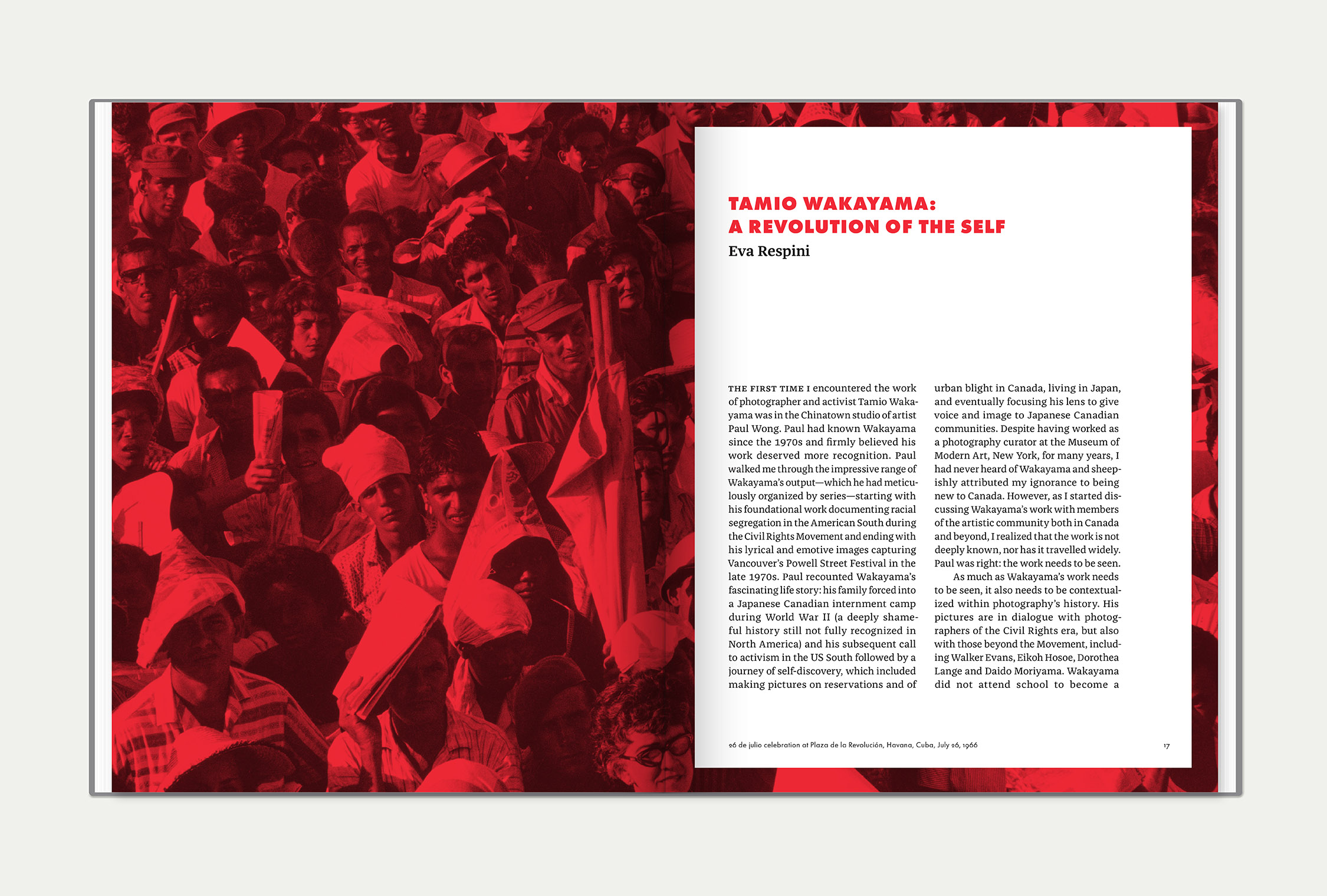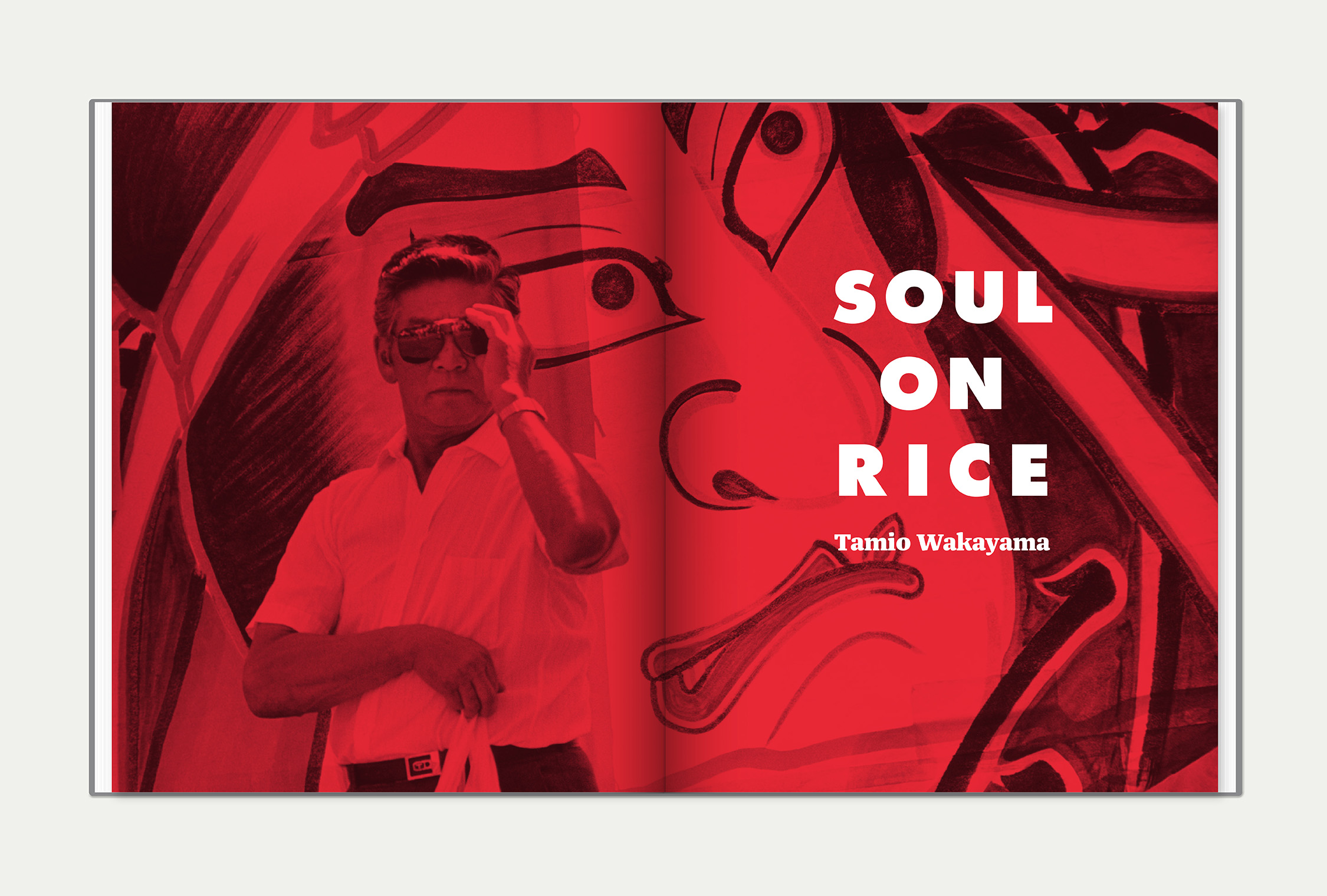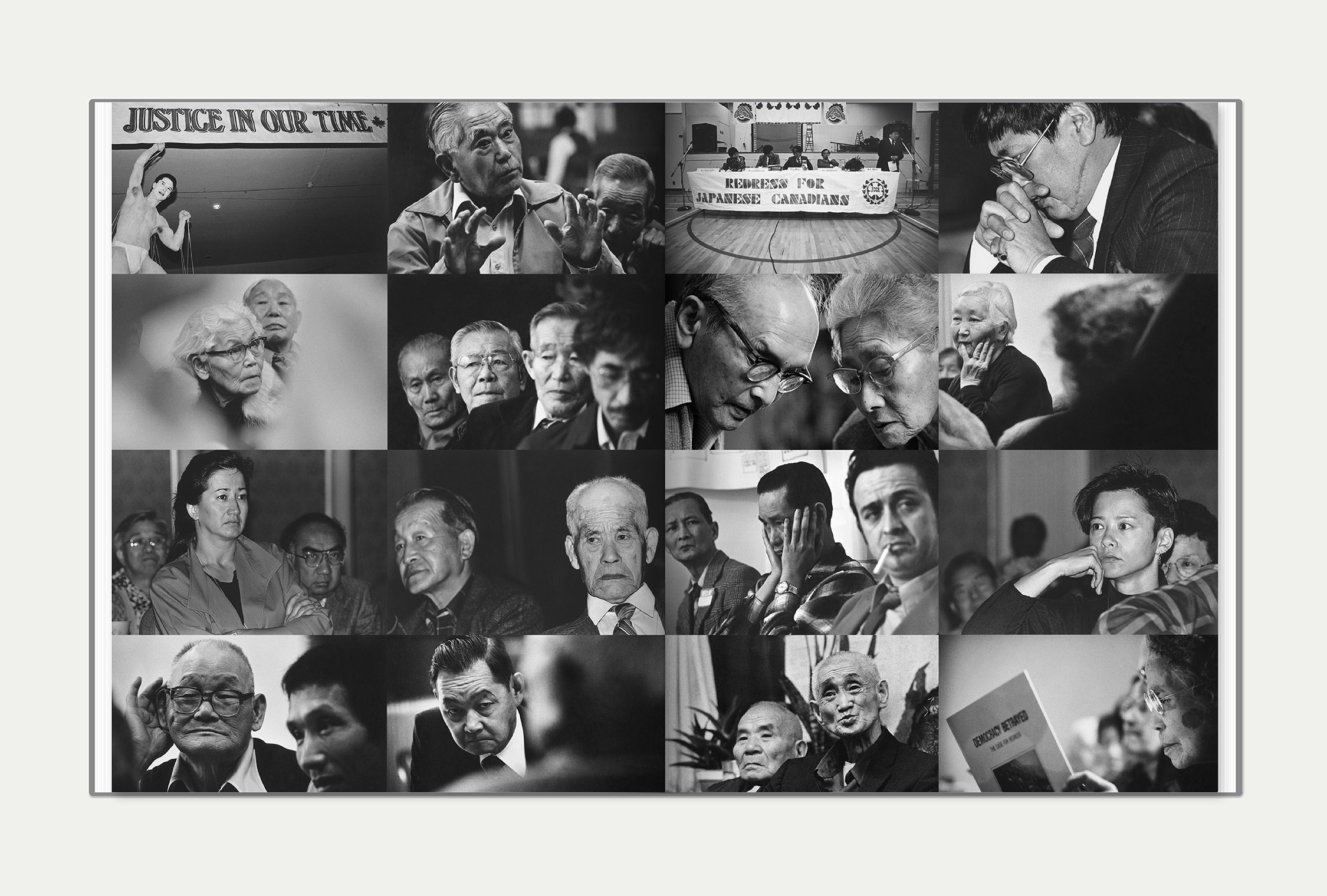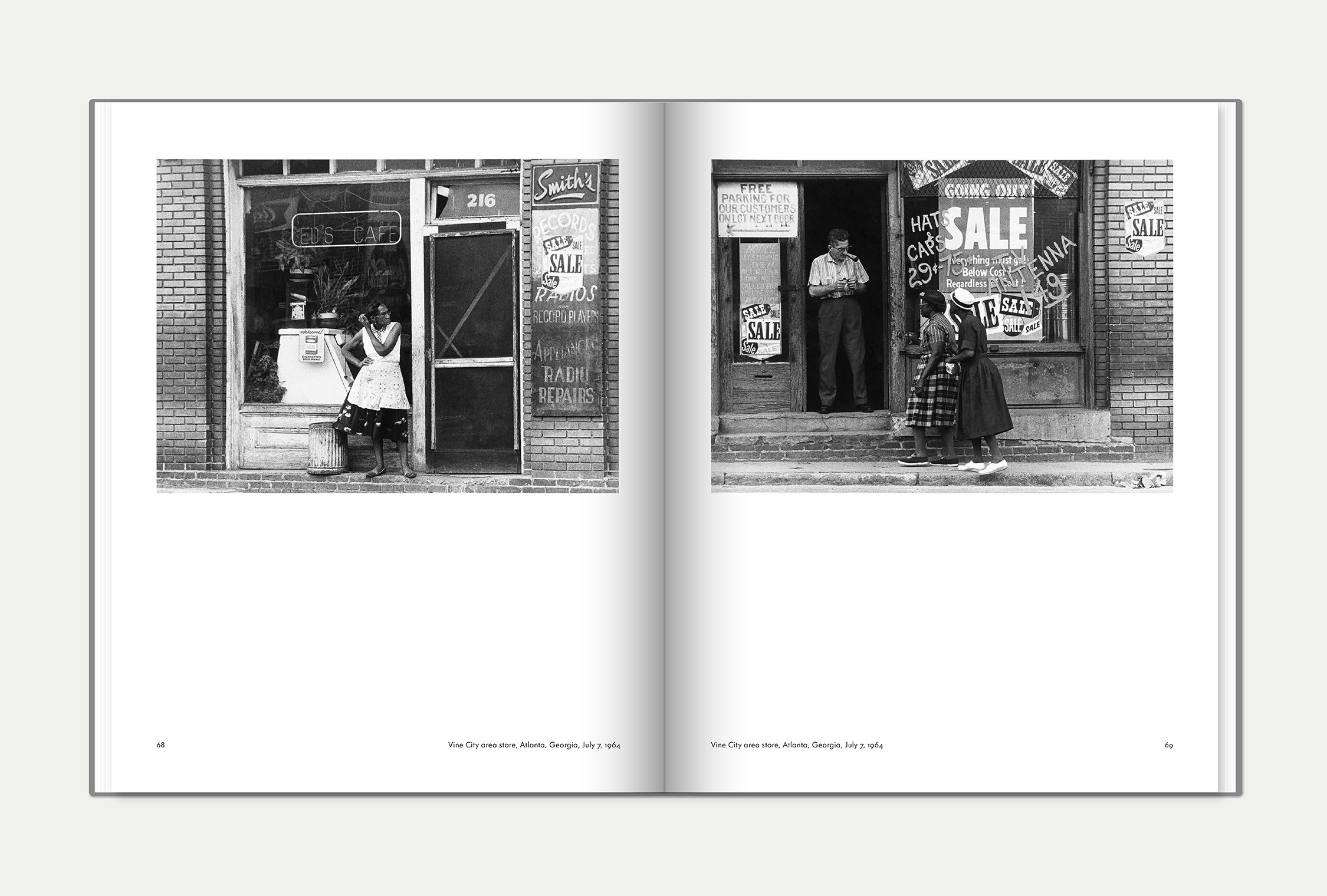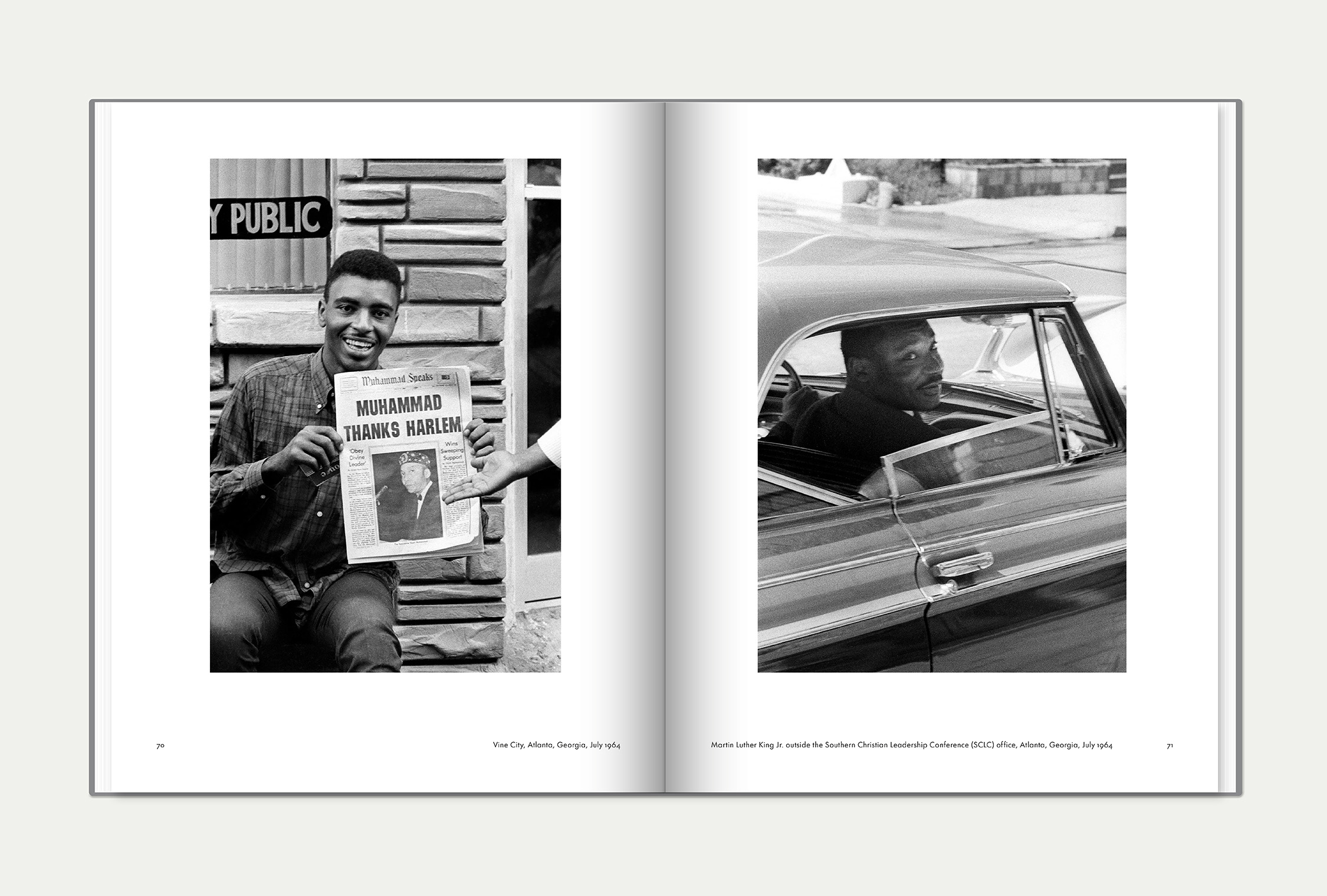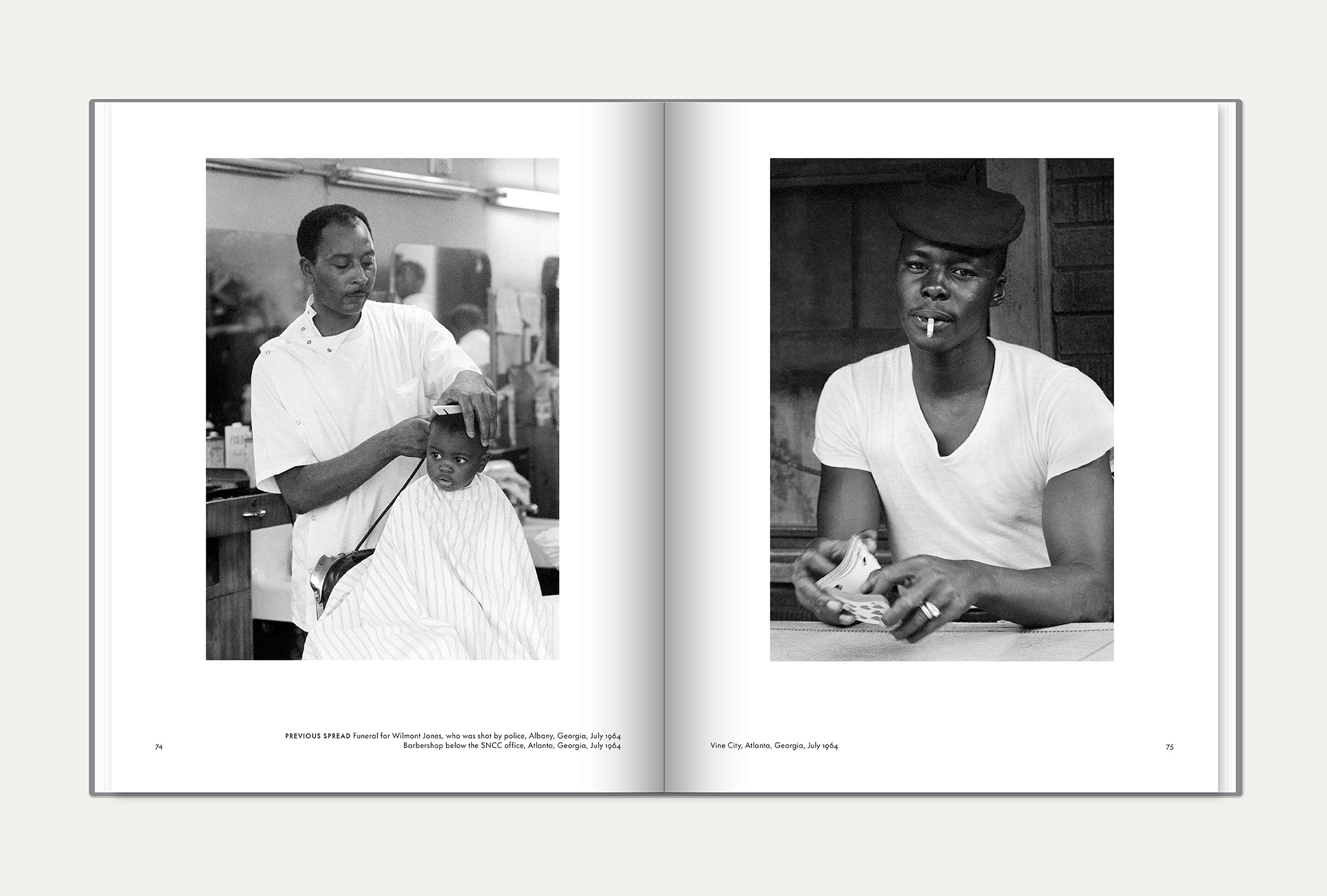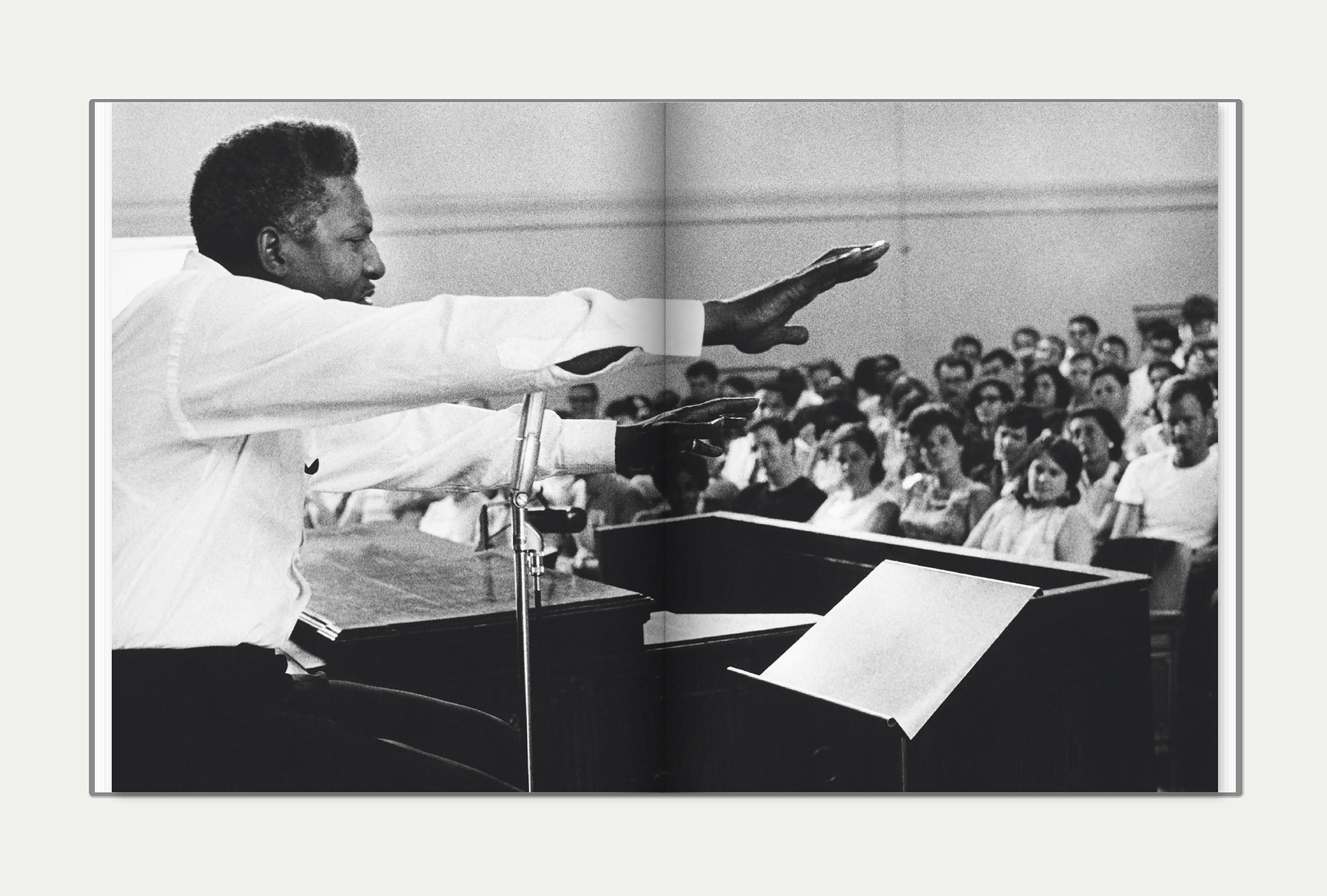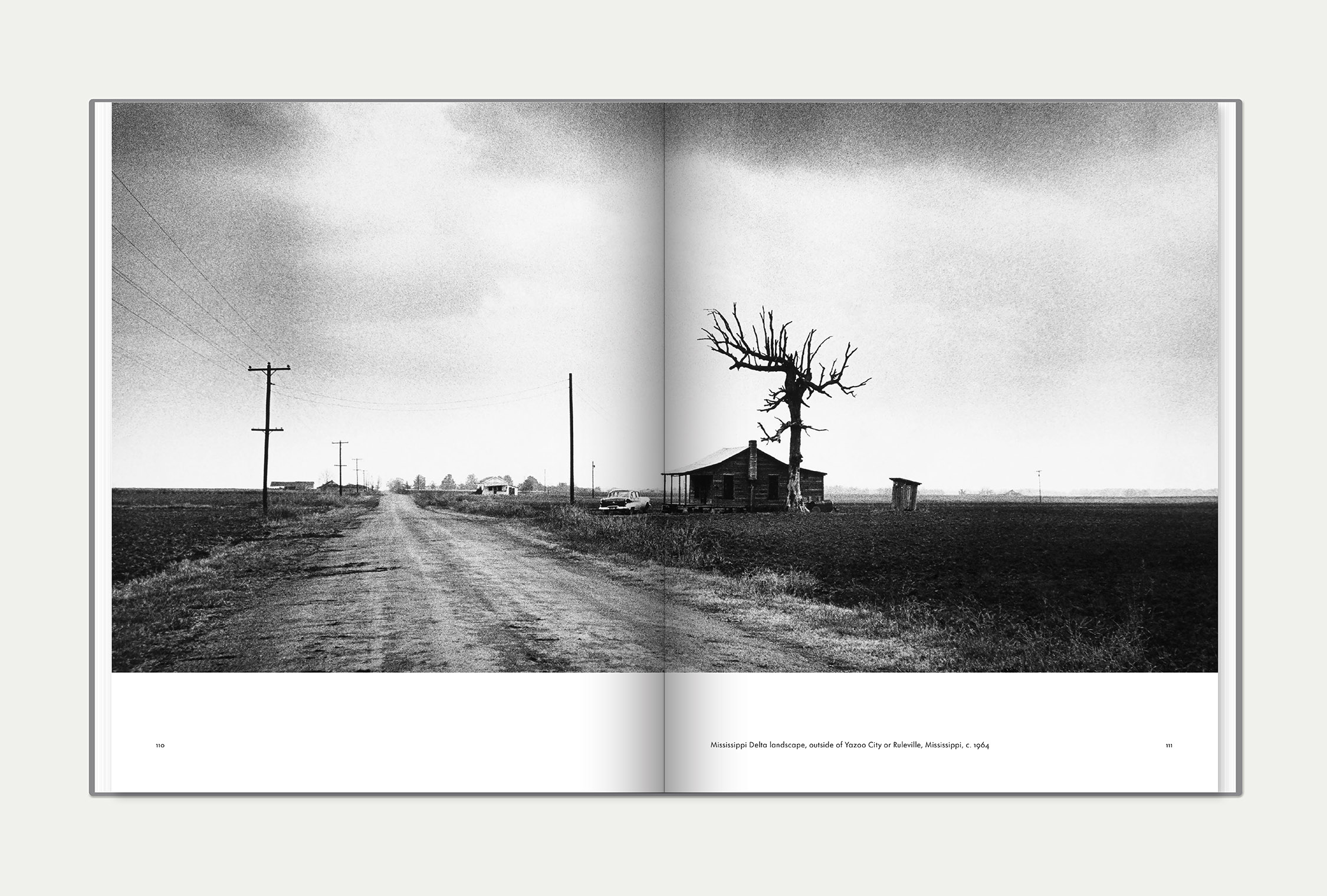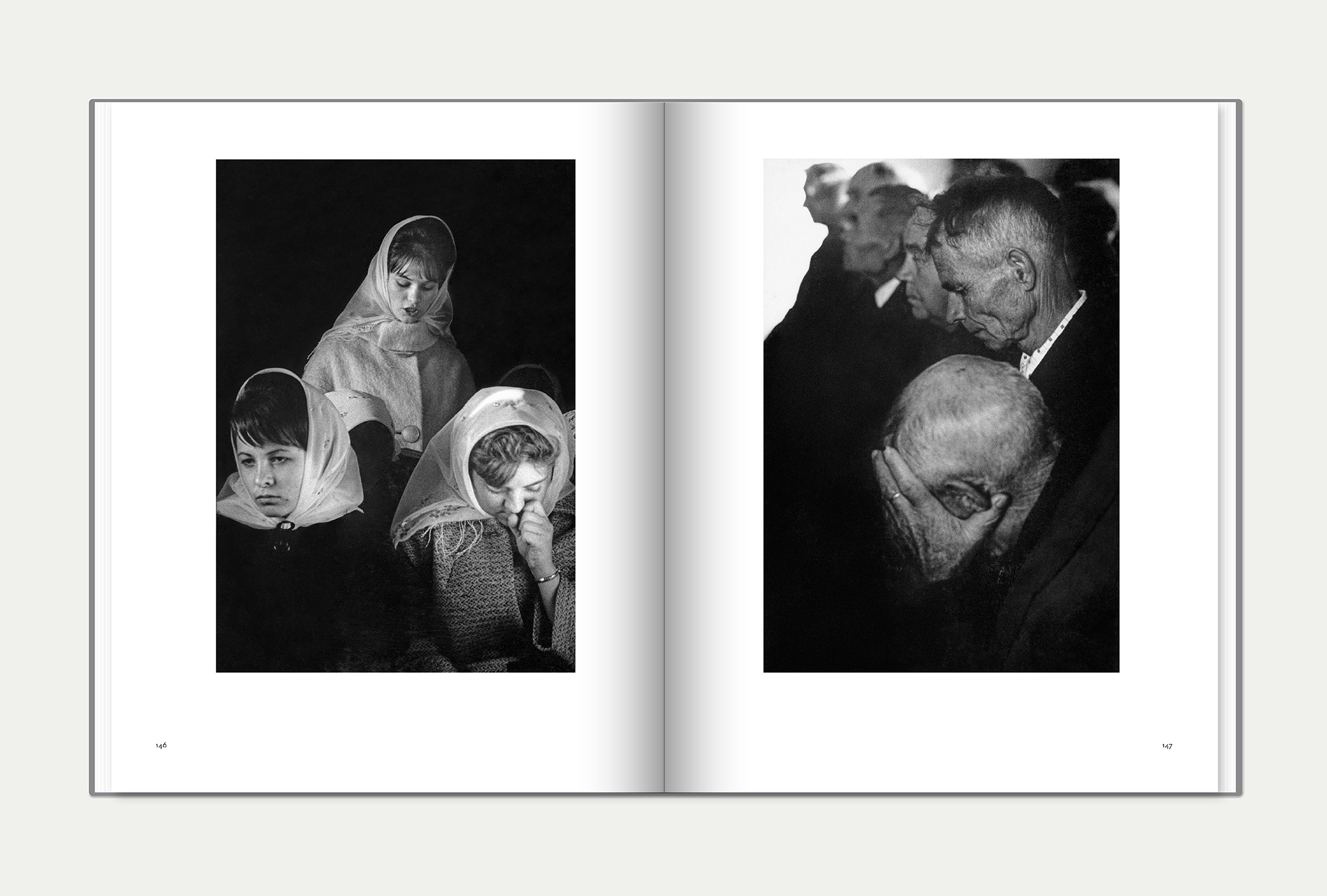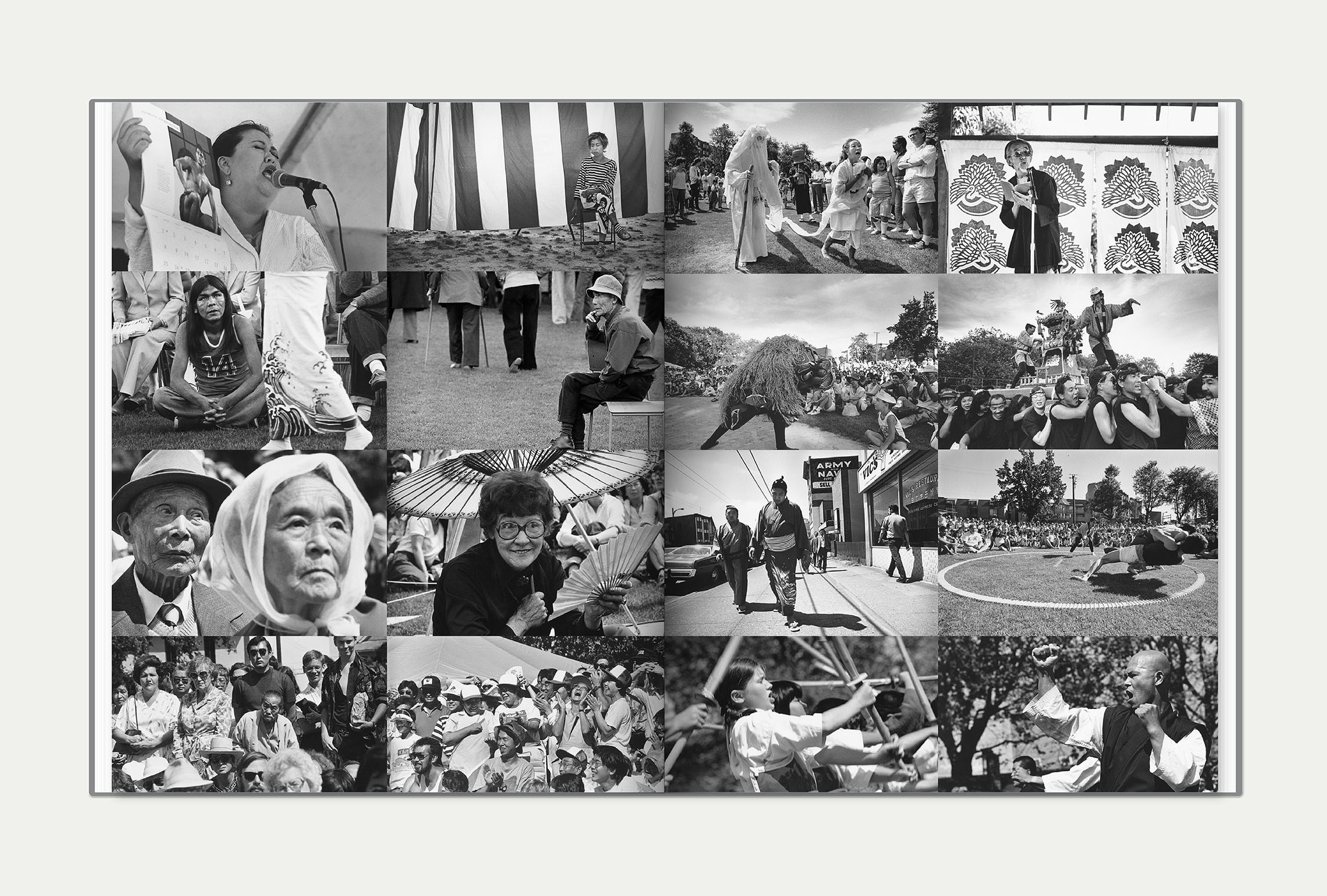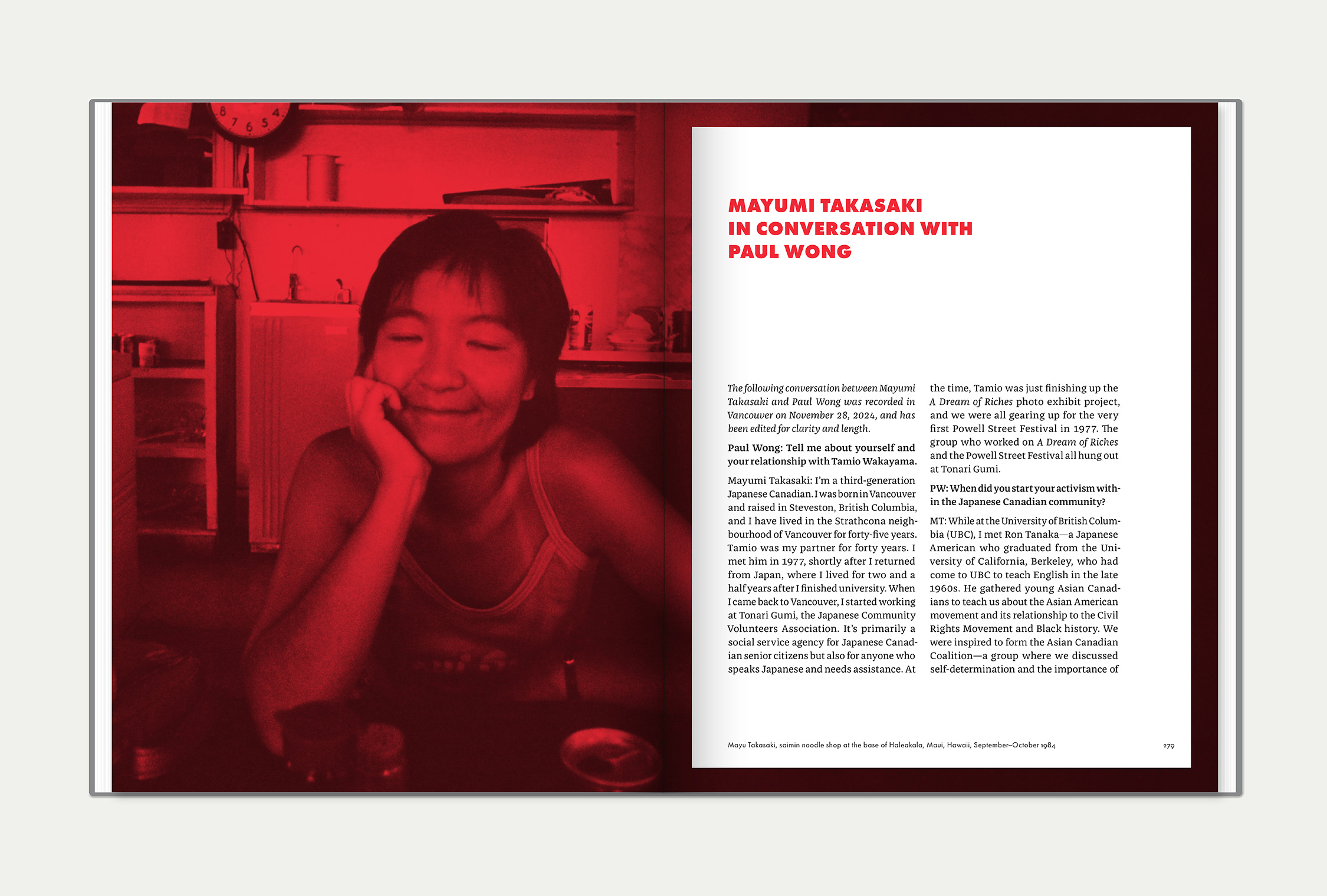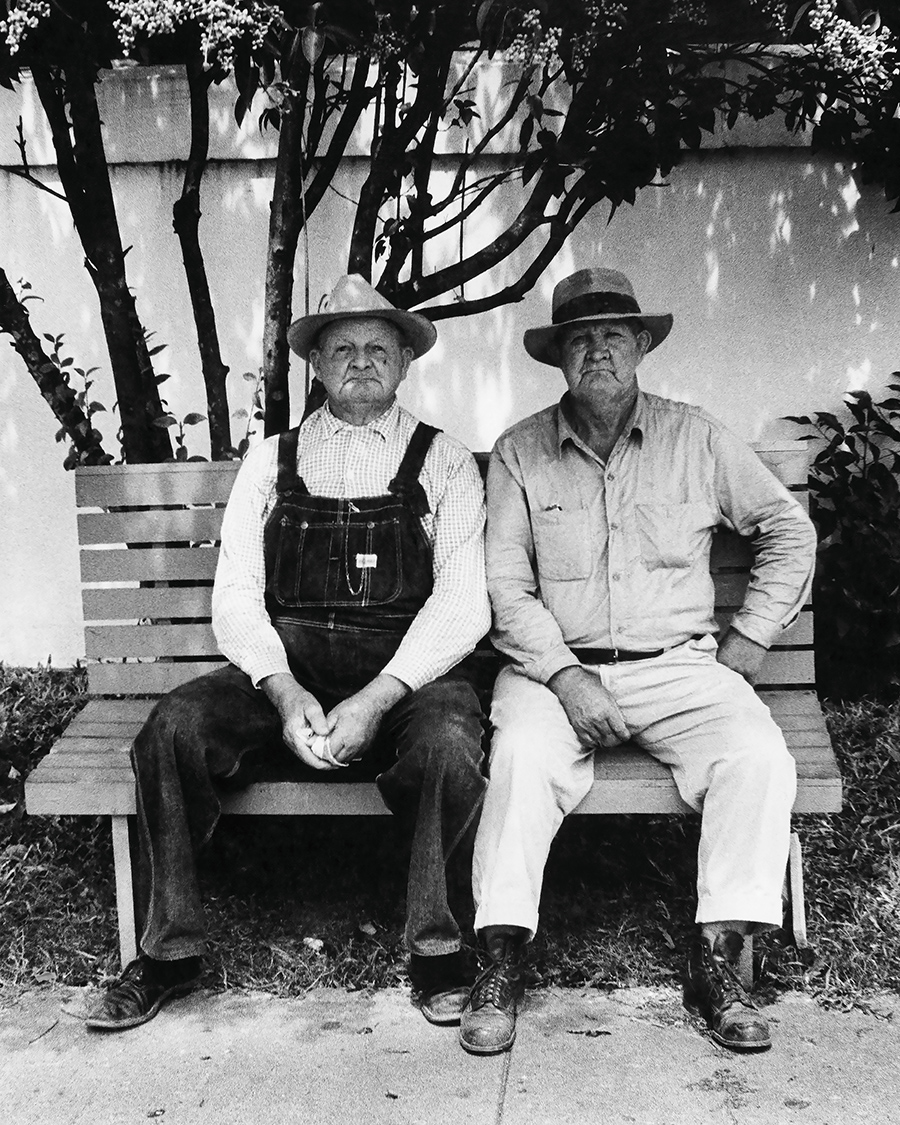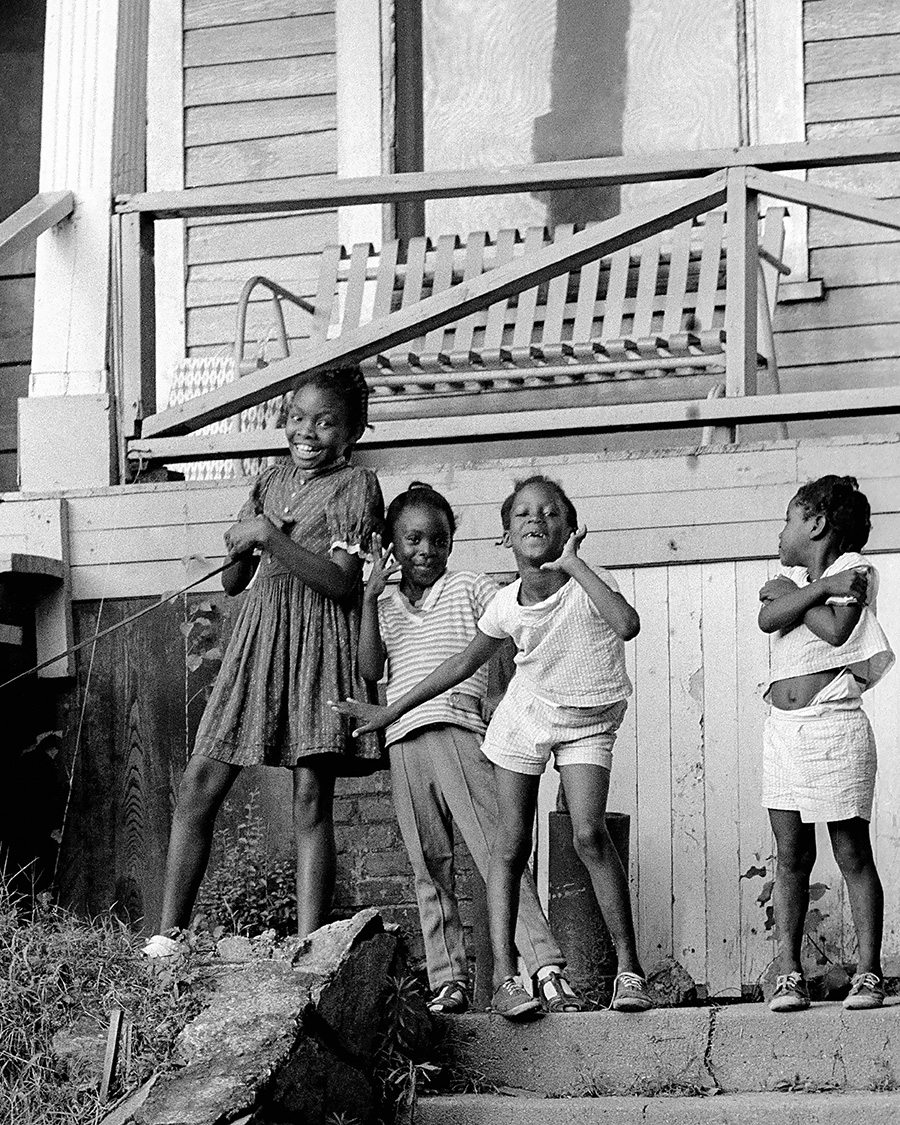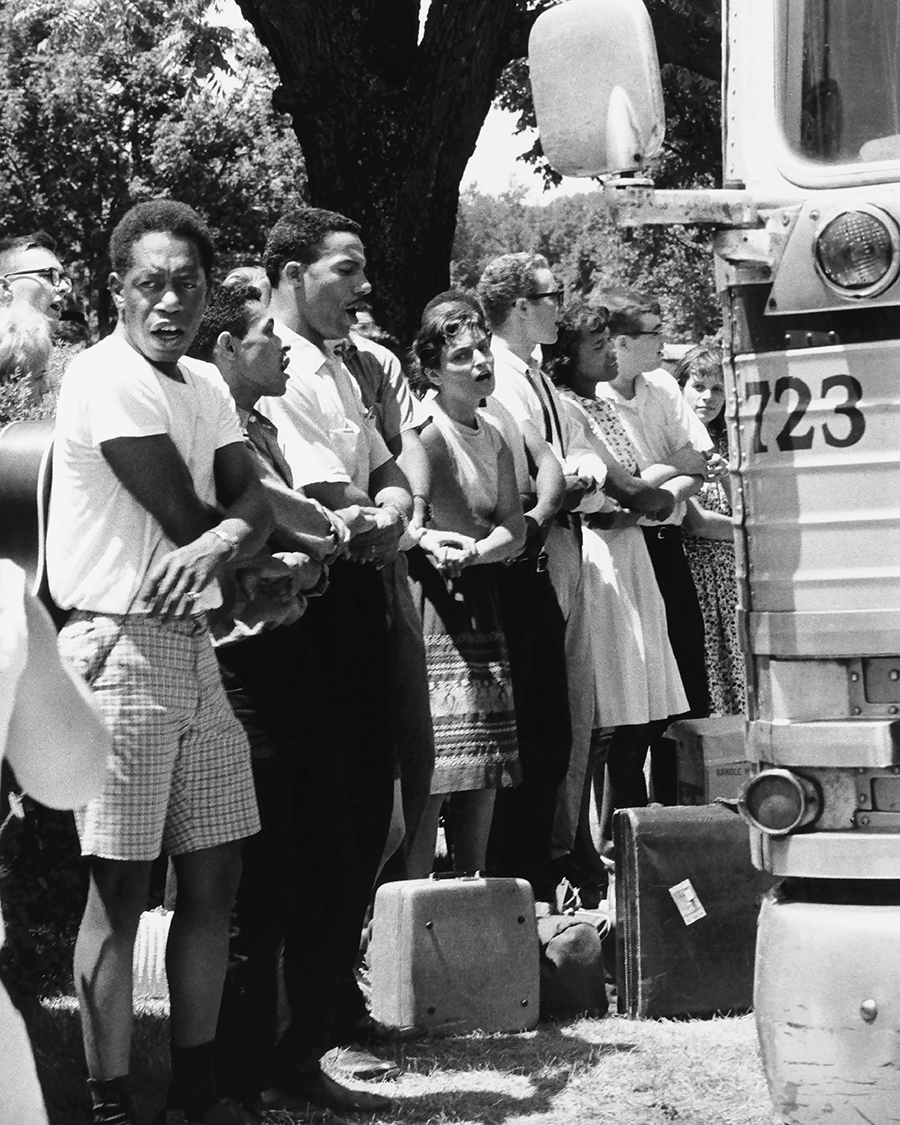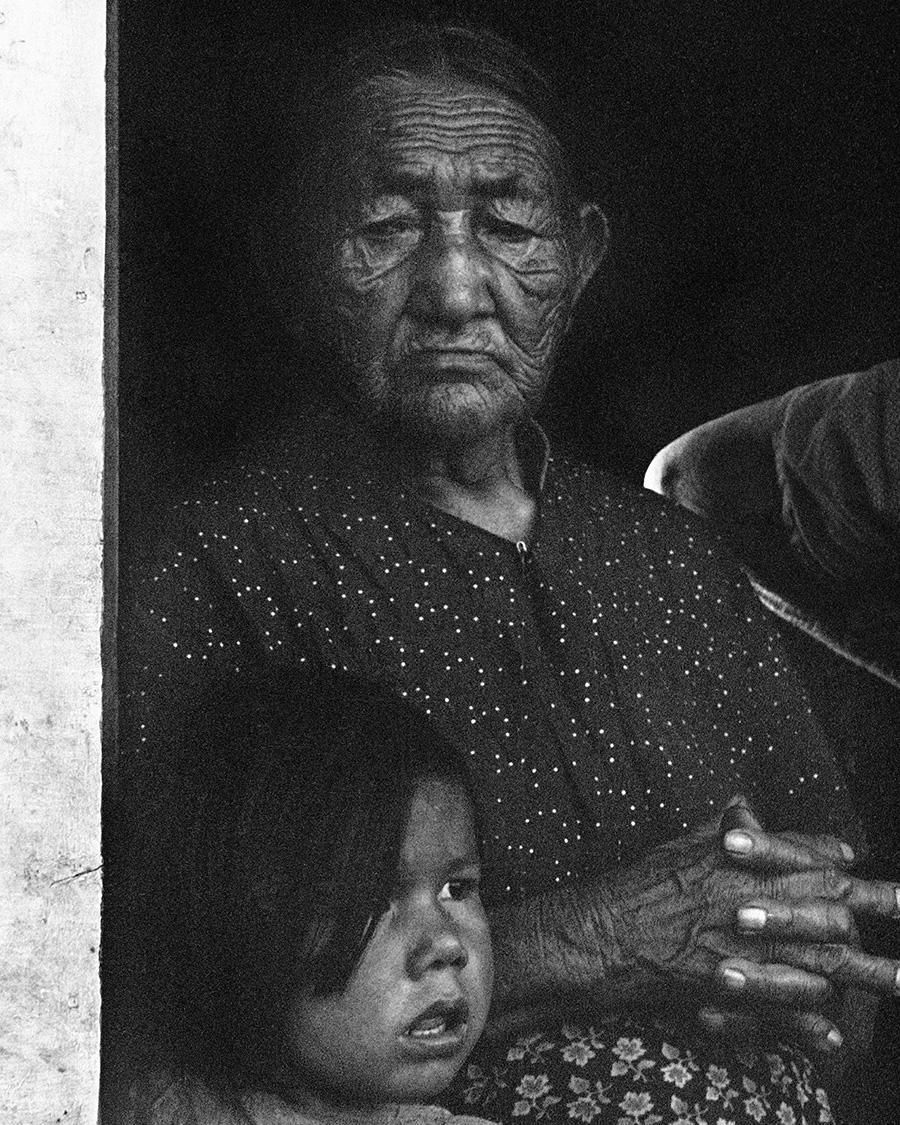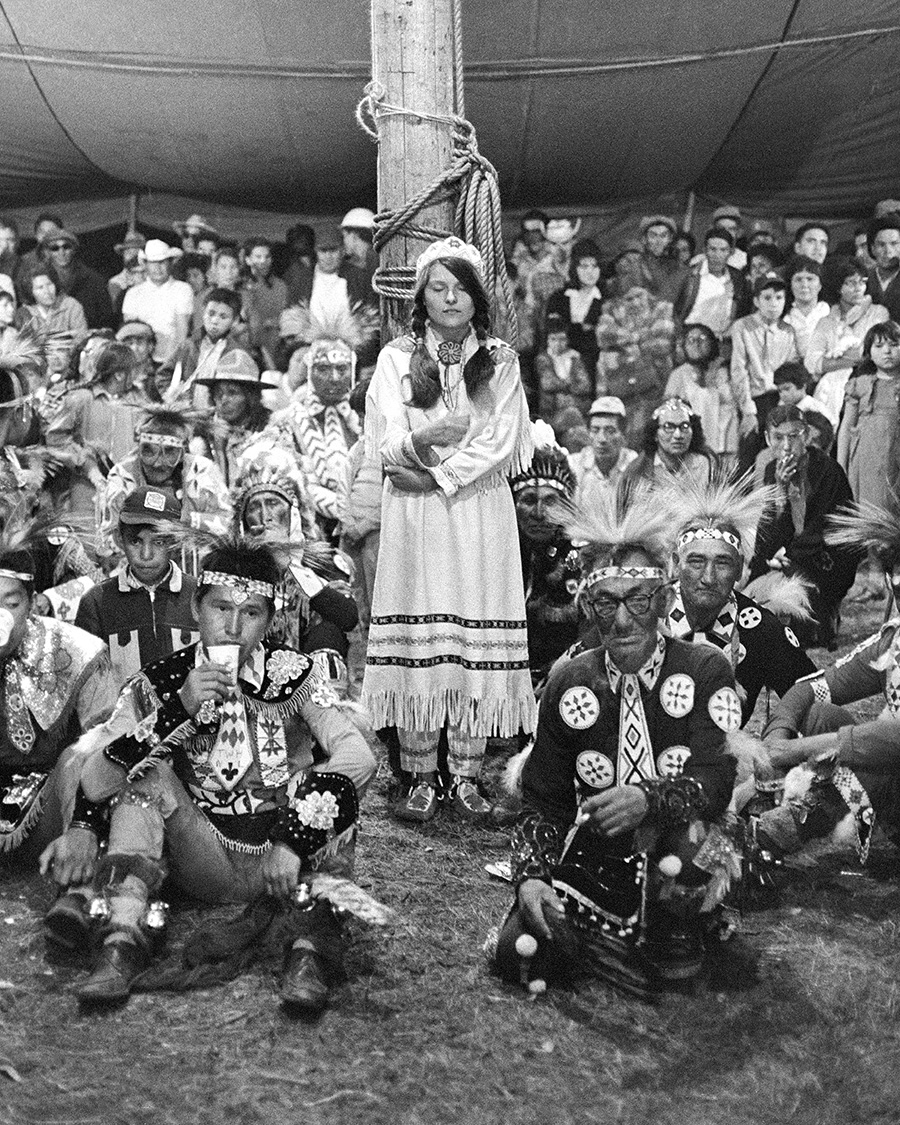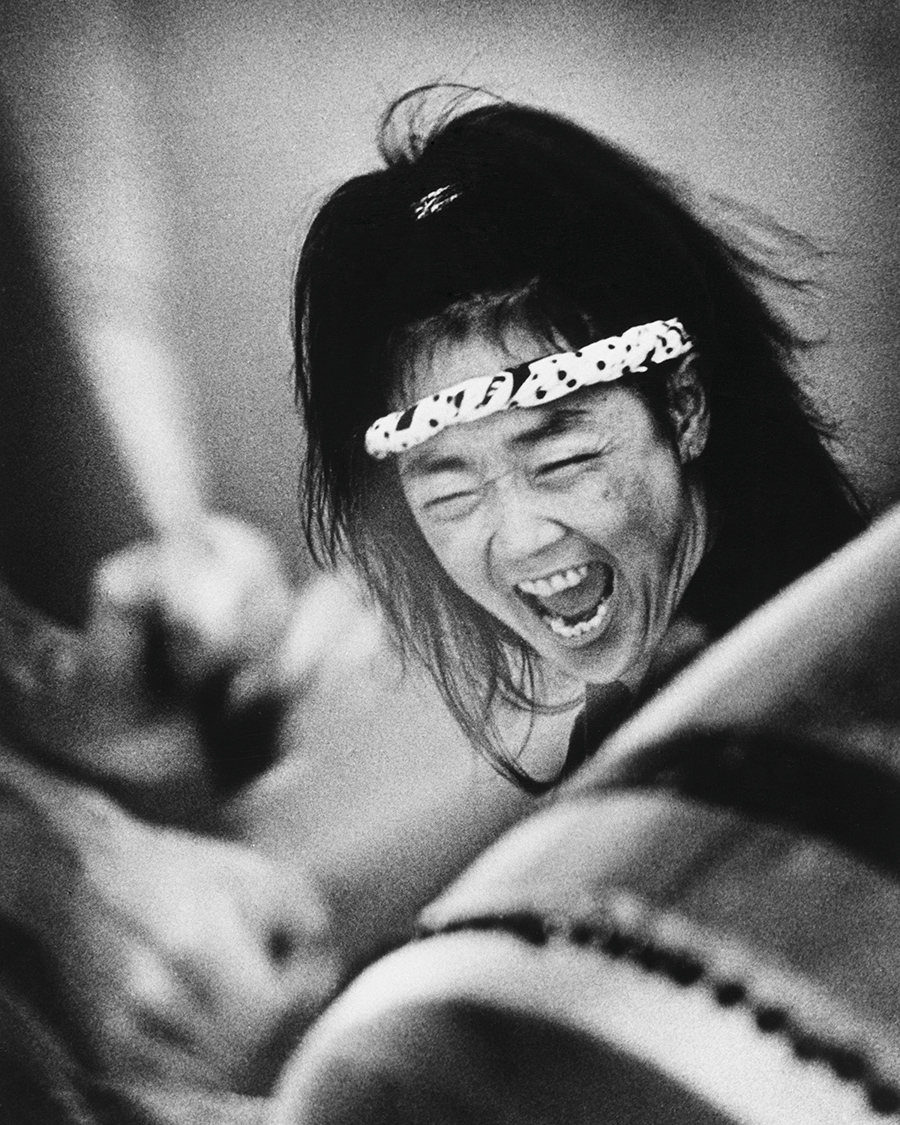Wakayama was born in New Westminster, British Columbia mere months before Pearl Harbor and was soon forcibly relocated with his parents to an internment camp for Japanese Canadians. This early childhood experience of injustice would shape the rest of his life and practice. Later, as a young man, Wakayama was vacationing in Tennessee when the Birmingham Church Bombing happened; inspired by a deep sympathy for the activists, he drove straight to Birmingham, met John Lewis, and began working for the Student Nonviolent Coordinating Committee (SNCC) in Atlanta, first as a cleaner and driver and soon as a photographer. For two years Wakayama produced campaign material and documented SNCC activists and actions in Georgia, Mississippi, and Alabama, including the 1964 Freedom Summer. After leaving the US, he photographed Indigenous and Doukhobor communities in Canada, everyday life in Japan and Cuba, and finally settled in Vancouver, where he joined the resurging Nikkei community and the Redress Movement, and for decades photographed the Powell Street Festival.
The centrepiece of the heavily illustrated publication is Wakayama’s unpublished memoir, Soul on Rice, which includes numerous photo spreads. Essays by Eva Respini and Paul Wong situate the artist’s practice within a broader art-historical context, and an interview with Mayumi Takasaki, Wakayama’s partner of forty years, offers an intimate perspective on his life and work. Photos and texts throughout the book are contextualized with archival material such as contact sheets, newspaper articles and the artist’s correspondence. Enemy Alien is co-published with the Vancouver Art Gallery in association with an exhibition of the same name, curated by Paul Wong.
Author
Paul Wong (b. 1954, Prince Rupert, BC) is an award-winning artist and independent curator known for pioneering early visual and media art in Canada. He is the artistic director of On Main Gallery and the co-founding director of the VIVO Media Arts Centre, a major Vancouver-based video production and distribution centre. Wong’s honours and awards include the Canada Council Bell Canada Award in Video Art (1992), a Governor General’s Award for Visual and Media Art (2005), the Audain Prize for Lifetime Achievement (2016), an Honorary Doctorate of Letters from Emily Carr University of Art + Design (2023), and the Fire Horse Lifetime Achievement Award (2024) from the Toronto International Reel Asian Film Festival.
More About Paul Wong
Tamio Wakayama (b. 1941, New Westminster, BC; d. 2018, Vancouver, BC) was a Japanese-Canadian photographer who began his career photographing the civil rights movement in the deep American South. He also documented everyday life in Japan, Cuba, the US and in several communities across Canada, including Indigenous groups in Saskatchewan and the Doukhobors in British Columbia.
In Vancouver he became part of the explosive creativity of the revitalization of the Nikkei community. He committed years to documenting the Japanese Canadian communities including projects around the Redress Movement and the Powell Street Festival. He led a project marking the centennial of Japanese Canadians, which resulted in a travelling exhibition of photographs honoring the Issei in Canada and a publication titled A Dream of Riches: Japanese Canadians. After the development of this project in Vancouver, Wakayama’s archives will be held at Stanford University.
More About Tamio Wakayama
Eva Respini is Deputy Director and Director of Curatorial Programs at the Vancouver Art Gallery, and teaches a seminar on curatorial practice at Harvard University’s Graduate School of Design. As deputy director and curator at the Institute of Contemporary Art Boston from 2015 to 2023, she organized the highly successful mid-career survey of Simone Leigh, which tours across the US through 2025. Previously she worked as a curator in the photography department at the Museum of Modern Art for a decade. She has edited and contributed to numerous publications, and her work appears in various museum publications and periodicals.
More About Eva Respini
Mayumi Takasaki is a third-generation Japanese Canadian. Since the 1970s, she has been involved with the Japanese Canadian community in Vancouver, with the Powell Street Festival and Tonari Gumi (the Japanese Community Volunteers Association)—a social service agency for Japanese Canadian senior citizens. She is also a founding member of Katari Taiko, the first taiko group in Canada.
More About Mayumi Takasaki
Press
“As an artist and a person, Wakayama got involved and got his hands dirty. He dug deep and, in the process, documented almost four decades of extraordinary moments both big and small.”
—The Tyee
CBC North by Northwest with Margaret Gallagher: Curator Paul Wong on “Enemy Alien: Tamio Wakayama” at the Vancouver Art Gallery
BC BookLook
